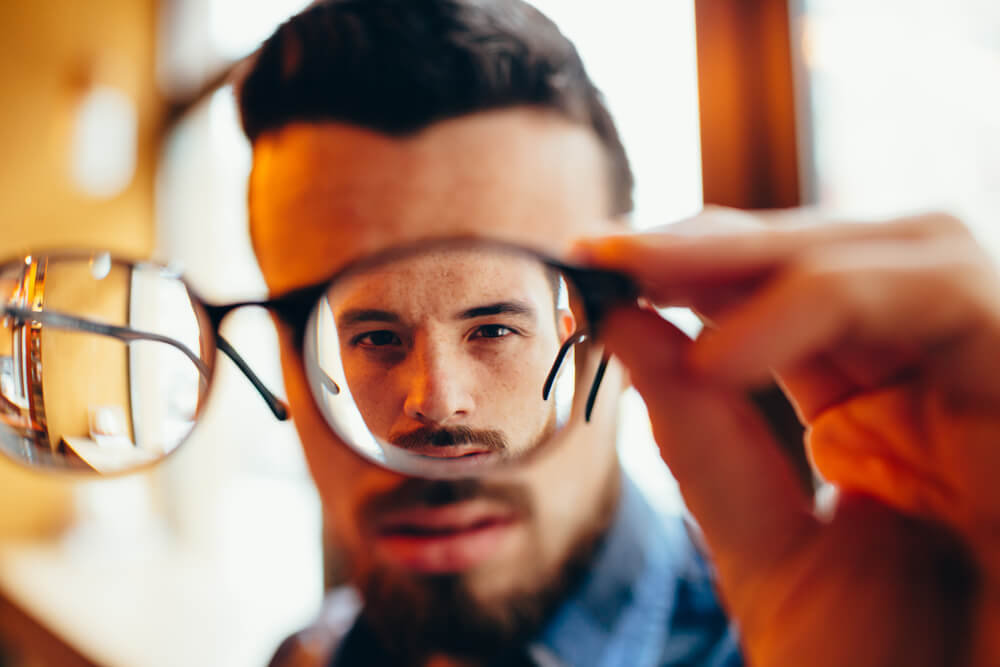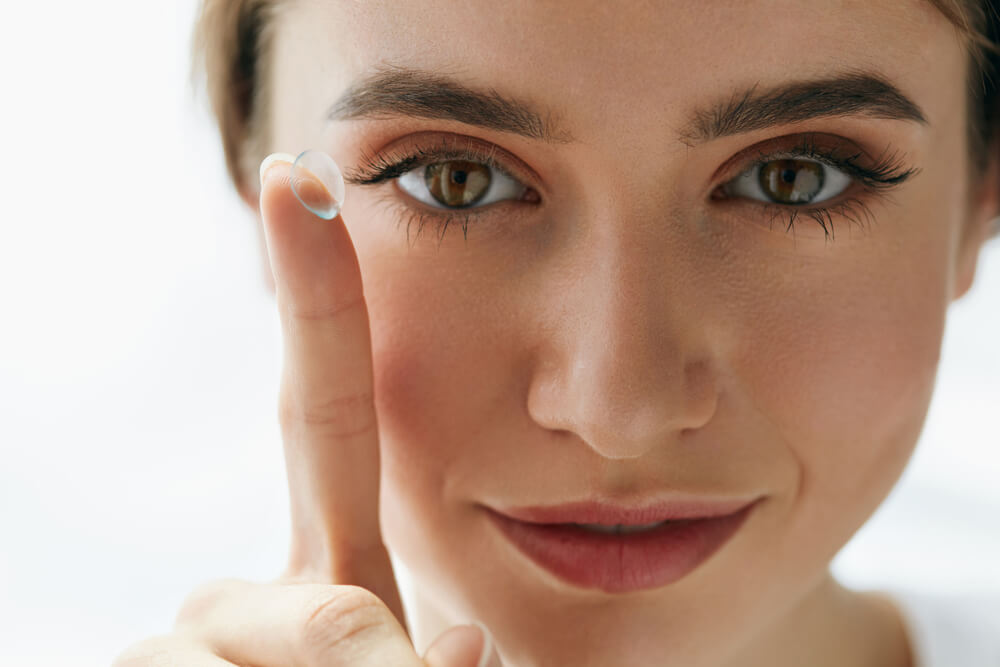How Diabetes Affects Your Vision
Diabetes is a condition that occurs when your body isn’t able to properly process food as energy. It affects your ability to produce insulin, the hormone that delivers glucose (or blood sugar) to the cells in your body. If you have too much glucose in your bloodstream, it may cause damage to the blood vessels and nerves that run through your body—including those in your eyes.
At Beyond Vision Center in Carlsbad, California, we always prioritize our patients’ eye health by providing comprehensive care. That’s why we recommend that those with diabetes attend regular diabetic eye exams to avoid developing diabetic eye disease.
What is Diabetic Eye Disease?
Diabetic eye disease is a group of eye problems that may result from diabetes. Diabetic retinopathy and diabetic macular edema are both common forms of diabetic eye disease.

Diabetic Retinopathy
Diabetic retinopathy occurs when the eye’s blood vessels begin to leak blood and fluid into the retina, which can cause damage and permanent vision loss. For patients with this condition, early detection and treatment are critical for preserving eye health.

Diabetic Macular Edema
Diabetic macular edema (DME) is a complication of diabetic retinopathy that results from the swelling of the macula, the center of the retina. Because the macula is responsible for your central and color vision, when it swells, it damages the vessels, causes them to leak, and results in vision loss.
Treatments for Diabetic Eye Disease
Fortunately, Beyond Vision Center in Carlsbad offers many eye care services to help treat diabetic eye disease. While the most effective way to lower your risk of developing diabetic eye disease is to manage your diabetes and keep your blood sugar levels in a healthy range, once you have been diagnosed with a diabetic eye disease, optometrist intervention becomes essential.
Medical injections, such as anti-VEGF drugs, can help to slow down or reverse diabetic eye disease. Eye doctors can also use eye care services such as laser treatment to reduce swelling in the retina, prevent your blood vessels from leaking, and improve your vision. For those with more severe symptoms of diabetic eye disease, your optometrist may recommend a type of eye surgery called a vitrectomy. Eye surgery isn’t necessary for all patients with diabetic eye disease, but eye surgery may be beneficial to improving your visual health if your condition worsens.

When Should I Schedule Diabetic Eye Exams?
Patients with diabetes should attend an annual diabetic eye exam appointment to ensure early detection of any vision problems. Patients with later stage diabetic retinopathy may need to receive comprehensive dilated eye exams as frequently as every 2 to 4 months.
What Happens During Diabetic Eye Exams?
Although diabetic eye exams are similar to regular eye exams, they involve more in-depth eye care treatments. During a diabetic eye exam, your optometrist will focus specifically on the health of your retina and the condition of the blood vessels in your eye.

Pupil Dilation
All diabetic eye exams involve pupil dilation, which enables your eye doctor to have a clear view of your eyes’ inner workings. Pupil dilation helps to make your retina, optic nerve, and the blood vessels in the back of your eye more visible so that your eye doctor can assess your vision more easily and provide more effective eye care diagnoses.

Fluorescein Angiography
This test allows eye doctors to detect whether there is any damage to the blood vessels in your eyes. A dye will be injected into your arm and travel through the bloodstream to your eyes to highlight any blood vessel damage that may need to be addressed.

Vision Test
Like with a typical exam, during a diabetic eye exam you’ll receive a vision test to measure the clarity of your vision. Your eye doctor may also perform lens exams to determine whether a contact lens prescription may be beneficial to your eye health.

Lens exams
Lens exams help to find the best contact lens options for your eye health. If you’ve noticed changes in your vision, it may be beneficial to ask your doctor to conduct a lens exam. While a contact lens prescription won’t reverse damage to your vision, it can prolong the effects of vision loss that may accompany diabetes.

Identifying Additional Eye Health Issues
Diabetic eye exams can also be used to identify other vision problems, such as glaucoma, cataracts, and age-related macular degeneration.
FAQ
A diabetic eye exam helps detect early signs of diabetic retinopathy and other eye conditions that can lead to vision loss. Early detection allows for timely treatment to prevent complications. Learn more about the importance of eye exams here.
While some diabetic eye problems cannot be fully prevented, managing blood sugar levels, maintaining a healthy diet, and getting regular eye exams can significantly reduce the risk of developing serious eye conditions.
Diabetes can cause damage to the blood vessels in the retina leading to diabetic retinopathy and increase the risk of other eye conditions like cataracts and glaucoma, which is why regular eye exams are crucial.
If you experience blurred vision, floaters, difficulty seeing at night, or sudden vision loss, it’s important to schedule a diabetic eye exam. These can be signs of diabetic eye conditions that require attention.
The Importance of Optometry
Vision is essential to every patients’ overall health, and with the proper eye care, you can ensure that your sight remains clear for as long as possible. At Beyond Vision Center in Carlsbad, we offer a number of optometry services to improve your visual health.

Finding a Trusted Optometrist
The most important aspect of eye care is finding a trusted provider. Our optometrists, Dr. Sloan Rajadhyksha and Dr. Hunter Morgan, are highly skilled professionals who prioritize patient satisfaction and comprehensive eye care. You can be confident that you’re in good hands with Beyond Vision Center.
Senior Eye Care at BVC in Carlsbad
Beyond Vision Center in Carlsbad is proud to offer our patients high-quality eye care services. In addition to diabetic eye exams, we provide a number of other services, such as senior eye examinations, retinal health evaluations, and eye surgery.
Call our Carlsbad office at (619) 466-5665 to book your appointment today!
Contact Us






